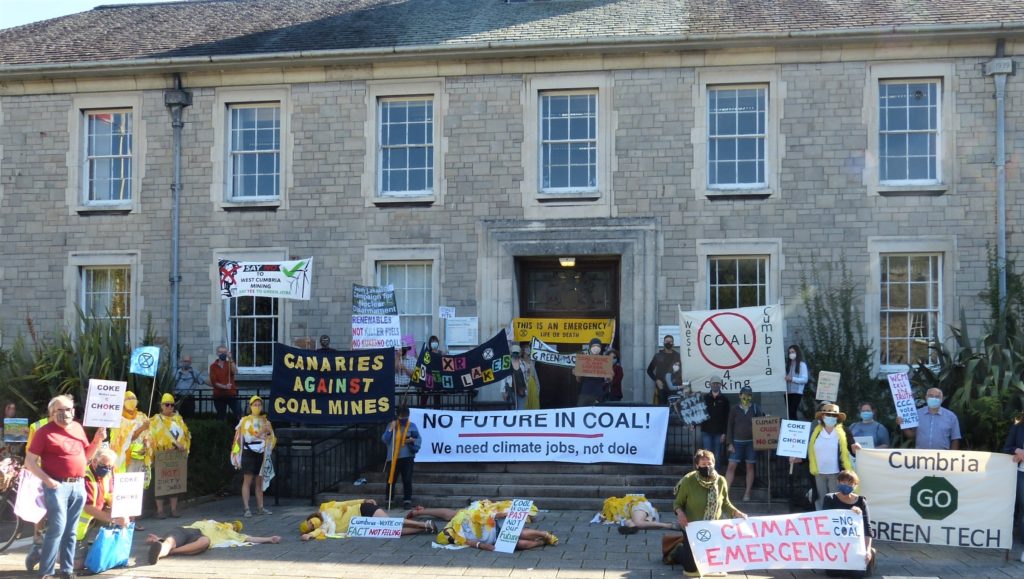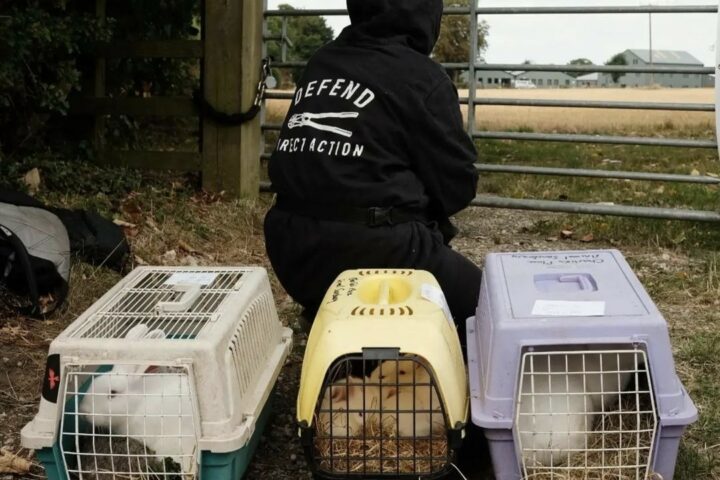This afternoon Cumbria County Council approved, for the second time, the application by West Cumbria Mining to extract 2.78 million tonnes of coking coal a year from Woodhouse Colliery, near Whitehaven.
The Councillors said that it was a finely balanced decision, with the Council proposing 101 conditions on the project. The council has already reduced the lifespan of the proposed operation from 2070 to 2049. The scientific arguments around emissions seemed to be too complex for some of the Councillors to grasp.
A year ago the decision to approve this mine was unanimous, this time 12 were in favour of accepting the application, 3 were against and 2 abstained from the voting.
The coal from this site is suitable for use in steel making, but would mainly be shipped to Europe. Alternatives methods of new steel production such as Direct Reduction Iron and recycling scrap steel already exist.
If this mine were to go ahead it would mean the first new underground coal mine to be started in the UK in many years. The last underground mine, Kellingley Colliery which produced coal for power stations was closed in 2015.
The Councillors who voted against the application had varying reasons, including expecting that the quantity of coal mined in the USA would not be reduced as the companies would find alternative markets in the USA or Latin America. West Cumbria Mining said that this mine’s coal production would mean coal in other places was left underground and so there would not be additional carbon emissions due to mining an additional 2.78 million tonnes of coal but this was not unanimously accepted and has been refuted by top economists. Another Councillor had strong concerns about heritage impacts. Both the Chair and the Vice Chair voted against the application.
One of the Councillors who voted in favor of the application said, “I wasn’t elected to do global issues, I was elected to do Cumbria issues”.
Now the decision will go to Secretary of State for Housing, Communities and Local Government, Robert Jenrick, to decide whether he will call for a inquiry headed by a planning inspector into the application. If this happens the ultimate decision will be with the Secretary of State who has recently rejected the application by Banks Group to extract coal by opencast coal mining, from the Northumberland coast line.
Robert Jenrick warned the council that he would make this move if they decided to approve the application, before the hearing took place. Therefore this decision is not final.
Will you help to encourage the Secretary of State to call in this decision and decide against the application? There is a new petition launched after the application was approved, addressed to the Secretary of State.
Anne was at the hearing, and these were her thoughts at the end: “Today was a missed opportunity by Cumbria County Council to show real support for decarbonising the steel industry and rejecting this mine. The decision clearly involved careful consideration from some of the Councillors, but many said it was an exceptionally difficult case, leading to two abstentions. Society’s understanding that we cannot continue to use old technology in the face of the climate emergency is growing. Consequently the Secretary of State has said he will consider whether this decision should be made by Government is an important step, a year ago that possibility was dismissed.”
The UK government needs to take a strong stand on decarbonising heavy industry by stopping this application and making policy decisions that ensure real zero carbon is met quickly through bold action. The UK’s hosting of the Conference of Parties (COP26) in Glasgow next year should be a big encouragement to make the right decision and reject this and other projects which would worsen global climate change.
West Cumbria Mining, the company behind the application, is owned by Australian company EMR Capital.
The UK Government has committed itself to reach net zero carbon by 2050 but as yet has not managed to set out a roadmap to decarbonise the UK steel industry.



